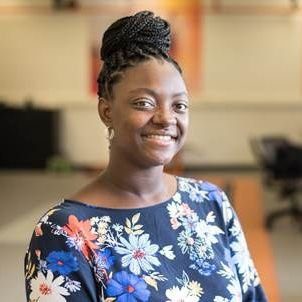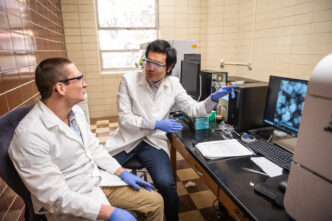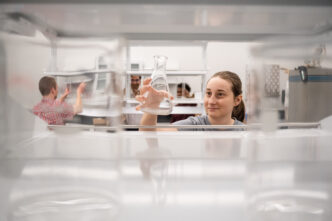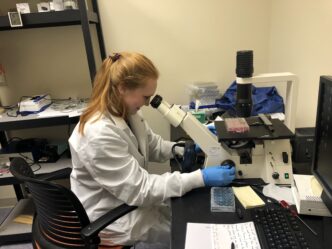Clemson University postdoctoral fellow Cherice Hill is leading a $1-million research project aimed at better understanding why a type of jaw disorder is more common among some groups than others.
Hill said that she has wanted to work in higher education since she was first introduced to research in high school, and the funding is helping her make the transition to a tenure-track faculty position. She is looking for her first faculty job and said Clemson is on her short list.

As part of her research, Hill is studying why females suffer from temporomandibular disorders at higher rates than males and why African Americans have higher incidence yet lower prevalence of the disorders than white Americans.
“We don’t really understand what drives those things,” she said. “We have some ideas, especially with the sex disparities, but there is very little research if any on the racial side. In addition to being interested in mechanics applied to the body, I am also interested in equity, health disparities and how we can best situate research to benefit everyone.”
Hill is conducting the research under the guidance of Hai Yao, professor, Ernest R. Norville Endowed Chair of Biomedical Engineering and associate chair for the Clemson University-Medical University of South Carolina Bioengineering Program.
Funding for the research comes from a National Institutes of Health program, MOSAIC Postdoctoral Career Transition Award to Promote Diversity (K99/R00).
“It is rare for a postdoctoral fellow to receive this level of funding,” Yao said. “The dollar amount is a testament to her hard work and passion for her research, community impact, and potential as a future faculty member. Her career is off to a stellar start at Clemson.”
Hill said that when she first joined Clemson in June 2020 she was attracted by the culture at the University and within the Department of Bioengineering. She remembers meeting Martine LaBerge, the department’s chair, and Delphine Dean, the Ron and Jane Lindsay Family Innovation Professor of Bioengineering.
“From the first time that I came in, I got a very welcoming vibe from the departmental faculty, staff and students, and that has continued in my time here,” she said. “For me, it’s super important to feel supported and welcome, and I very much got that from my first visit.”
Dean said that Hill is “the best of the best.”
“The MOSAIC Scholar program is highly selective and competitive and comes with a level of funding that surpasses some prestigious awards for researchers who are already faculty members,” Dean said. “I congratulate Cherice on all her well-deserved success.”
Hill has received multiple honors since joining Clemson. In addition to her research grant, she was chosen for the inaugural cohort of the American Association of Dental, Oral, and Craniofacial Research MIND the Future program. Her postdoctoral research earned her a spot as a finalist in the same association’s Hatton Competition.
Hill grew up in the Raleigh area and started working in a research lab at North Carolina State University when she was still a high school student. She went on to receive a Bachelor of Science in bioengineering and biomedical engineering from the University of Virginia and a Master of Science in biomedical/medical engineering and Ph.D. in biomedical engineering, both from Virginia Tech.
Since joining Clemson, Hill has been based in Charleston as part of the Clemson University-Medical University of South Carolina Bioengineering Program. In the program, Clemson bioengineering faculty and students are based at MUSC’s Charleston campus where they collaborate closely with MUSC researchers and clinicians.
Hill was also supported by the National Institute of Dental and Craniofacial Research’s T32 Dental Scientist Training Program based at MUSC and directed by Yao and MUSC Professor Michael Kern.
“Even though I am not on the main campus, I still do feel very much like a part of the department community,” Hill said. “I’ve gotten to know Dr. LaBerge, Dr. Dean, Dr. (Jordon) Gilmore and several other members of the faculty pretty well. I recently saw them at a conference and was able to catch up with a lot of them in person and very much felt like I was already a part of their community. That goes a long way. For me, I think that makes a lot of other things a lot easier if it feels like a very open and collaborative, collegial community.”






